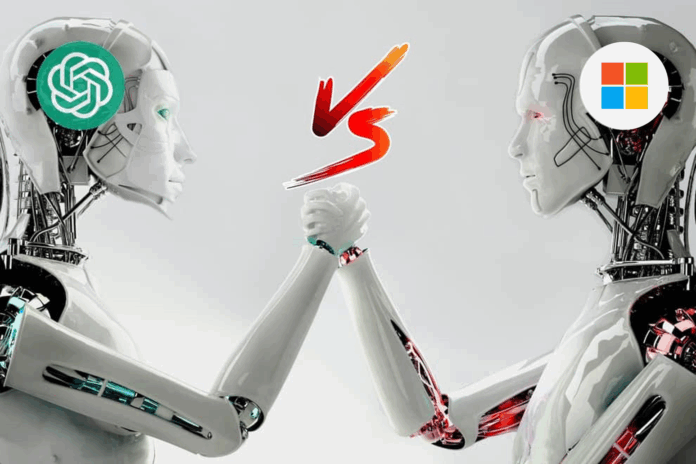Power Moves Reshaping Silicon Valley
- AI companies are offering up to $20 million compensation packages to top researchers, escalating a fierce battle for talent.
- Recent departures from OpenAI have intensified the legal complexity around non-competes, trade secrets, and employee poaching.
- As AI evolves, so does liability: Insurers are facing new exposures from decisions driven by algorithmic models created by high-paid superstars.
By Samuel Lopez – USA Herald
SAN FRANCISCO, May 21 (USA Herald) – In a talent war reminiscent of the free agency madness in professional sports, artificial intelligence giants including OpenAI, Google DeepMind, and Elon Musk’s xAI are locked in a high-stakes race for the industry’s most prized assets: its human brains.
Amid a tech-driven gold rush, superstar researchers in AI are commanding jaw-dropping compensation packages, with some reportedly earning over $10 million a year, according to multiple insiders. Behind the glitz of Silicon Valley’s arms race lies a critical yet underexamined narrative: the legal and insurance industries are being quietly reshaped by this elite class of AI professionals and the companies desperate to retain them.
The exodus of researchers from OpenAI, including high-profile departures like former CTO Mira Murati and former Chief Scientist Ilya Sutskever, has triggered more than just press releases and seed rounds — it’s igniting legal alarms. When Murati founded her own AI startup and recruited 20 OpenAI employees before even launching a product, OpenAI insiders whispered about potential litigation over employment contracts, non-disclosure agreements (NDAs), and intellectual property rights.
“When you have researchers developing foundational technology at one company and then migrating en masse to a competitor, that raises serious trade secret concerns,” said a former in-house counsel for a major tech firm.
The aggressive retention strategies are also leading to litigation risks surrounding “golden handcuffs,” workplace coercion, and allegations of discriminatory compensation models. Companies are walking a fine line between incentivizing and improperly restricting their workforce.
The multimillion-dollar compensation packages, often involving off-cycle equity grants and shortened vesting periods, are redefining executive risk for directors and officers (D&O) insurers. Legal analysts say the trend introduces a layer of volatility to company cap tables and exposes insurers to novel liability scenarios.
“When you have individuals being paid eight figures to design and influence core decision-making algorithms, you’re no longer insuring just the board or C-suite,” said Rachel Dunbar, an executive liability underwriter. “You’re underwriting the risk of their code, their judgment, and how their AI creations might one day fail or misbehave.”
Policies are now being reevaluated to address who qualifies as a “key person,” especially in underwriting key man insurance and professional indemnity protections in the event of model failure, discriminatory outcomes, or cyber-induced litigation.
The 10,000x Researcher Phenomenon
OpenAI CEO Sam Altman famously tweeted in 2023 about 10,000x researchers — “sure 10x engineers are cool but damn those 10,000x engineer/researchers…,” a nod to a select group whose contributions to large language models (LLMs) are believed to exponentially outweigh those of their peers. This has created an ultra-competitive hiring environment, where retention bonuses of $2 million and equity hikes over $20 million are being used to prevent defections.
Google DeepMind, reportedly offering $20 million annual compensation to its elite talent, is slicing traditional four-year vesting to three years, another sign of desperation in a talent-scarce market. Meanwhile, xAI is leveraging Elon Musk’s star power, with personal calls and private jet visits sealing the deal for top-tier hires.
Yet, the scarcity of expertise is raising concerns beyond corporate poaching. As AI outputs are used in life-altering insurance decisions, medical diagnostics, and criminal sentencing tools, lawyers warn of a coming wave of algorithmic liability cases.
Recruiting in the Age of “Moneyball” for AI – The Search For “Rockstar Researchers.”
In a nod to baseball sabermetrics, data firm Zeki Data is using advanced statistical models to scout rising AI talent, applying techniques popularized by the film Moneyball. This includes targeting researchers from fields like quantum physics and theoretical mathematics.
“Anthropic and other labs are no longer just looking at MIT or Stanford. They’re scouring doctoral programs and obscure academic publications to find the next 10,000x mind,” said Zeki Data’s lead analyst.
Read more at USA Herald
🔗 Follow us on X @RealUSAHerald



